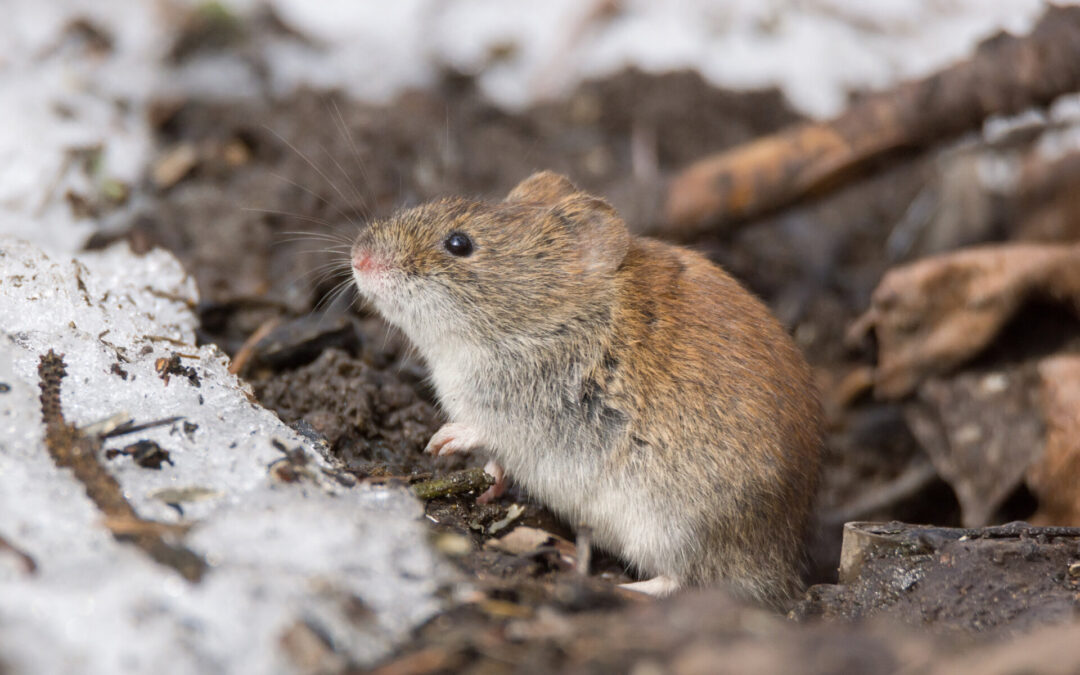As humans, we can survive below freezing temperatures. We may not like the ice and snow, but we can build a fire or turn on the heater and at least be comfortable.
Freezing temperatures are a reality in Austin in the winter. When this happens, you may see an abundance of ants, centipedes, spiders, beetles, and even mice taking residence in your home. That’s because they can’t handle the drop in temperature. For insects and rodents, winter is literally a matter of life or death. This is a sad reality, but the goal of these pests is to reproduce, and by the time winter comes around, most have already done so.
To survive an Austin winter, humans will do what they can to stay warm. Insects and rodents will do the same. They suffer through various effects when the temperatures drop. They will try to seek shelter in your home, which you want to avoid at all costs. Otherwise, you’ll be spending your winters sharing your home with various pests. You will need to spend money on pest control to get rid of these unwanted guests.
Effects on Insects
The colder temperatures affect insects in many ways, including the following:
- Winter survival strategies.Insects use various strategies to survive winter, such as building protective structures around themselves or seeking refuge in insulated locations. Beetles and other insects may burrow into the soil to stay warm.
- Slowed metabolism.Cold temperatures generally slow down the metabolic processes in insects. This can lead to a decrease in their activity levels, feeding rates, and overall energy expenditure.
- Hibernation.During colder months, many insects enter a state of hibernation, which is a dormant state in which they reduce their metabolic activity to conserve energy. Some insects seek shelter in burrows or leaf litter to survive the winter.
- Freezing tolerance.Some insects have developed adaptations to survive freezing temperatures. They produce substances like glycerol or antifreeze proteins that prevent ice crystal formation within their bodies. This process allows them to survive in a frozen state.
- Migration. Some insects migrate to warmer climates to escape the cold. A prime example of this are Monarch butterflies, which engage in long-distance migration to avoid winter conditions.
- Reduced reproduction. Cold temperatures can inhibit reproductive processes in insects. It may affect the development of eggs and larvae. Cold temperatures may delay or extend certain stages of the life cycle. Reproduction may slow down or stop altogether until the weather improves.
- Cold shock. Sudden exposure to extremely cold temperatures can cause cold shock in insects. This often leads to death, which is particularly true for insects that have not adapted to cold environments.
Effects on Rodents
Rodents are also affected by the cold weather. Here’s a look at the changes they face when the temperatures drop:
- Hibernation. When you think of hibernation, bears may be the first animal that comes to mind, but many rodents, such as mice and squirrels, are known to hibernate during extremely cold temperatures. Hibernation causes the rodents; metabolic rates to drop significantly, helping them conserve energy until the weather improves.
- Increased activity. Instead of hibernating, some rodents may become more active during cold weather. They may be looking for food and shelter, so people may see mice and rats inside their home during this time. Rodents will do what they can to stay warm, including building nests, whether they be indoors or outdoors. It is not uncommon for mice to enter buildings, homes, or other structures. This can pose problems for humans, as mice are nasty and carry many diseases.
- Food storage. Cold weather can also prompt rodents to hoard and store food supplies in their nests. This behavior helps them ensure a steady food source during times when foraging becomes challenging due to freezing conditions.
- Reproduction. Cold weather may impact the reproductive behavior of rodents. Some species may delay reproduction during colder months and wait for the weather to get warmer. Other mice may continue to breed, but this will depend on the availability of resources.
- Fur growth. Rodents do have some built-in protection against the elements. They tend to grow thicker fur during cold weather to provide better insulation.
Keeping Pests Out of Your Home
Don’t want to share your home with creepy crawlies? Here are some tips to keep bugs out:
- Place bait stations outside of your home. This gives rodents an alternative food source before they make it into your home. The mice and rats will eat the bait, which will in turn cause them to die.
- When it comes to those pesky spiders, use a spray that’s a microencapsulate. This Is an insecticide that will stick to the bug and kill it.
- To get rid of roaches, look under your sinks where the plumbing points are. If you put an insecticide there, it will prevent the roaches from coming in. Also, look for leaks and make sure there isn’t any water around. This will help keep roaches away, as they’re attracted to dark, wet spaces.
- Look out for ants. Keep food and water out of sight when you’re not around. Ants are especially attracted to sweet foods, so if they are left out, you may be inundated with ants.
- Seal up cracks and gaps. Make sure there are no holes in the exterior of the home. If you don’t, the cold weather could cause spiders and other small insects to seek shelter in your home.
Contact Us Today
You need to be mindful of insects and rodents seeking shelter in your home during the cold winter months. These pests do not thrive in freezing temperatures, so they will be looking to hibernate in warm places, like your home or business.
Pests can be a nuisance any time of the year. Stride Pest Control can help you keep insects, rodents, and other intrusive animals out of your home or yard and under control. Our experienced pest control technicians will safeguard your property so you can focus on other winter activities, like keeping your family warm. To schedule a free consultation, call (512) 777-1339 (Austin) or (210) 547-8410 (San Antonio) or fill out the online form.


